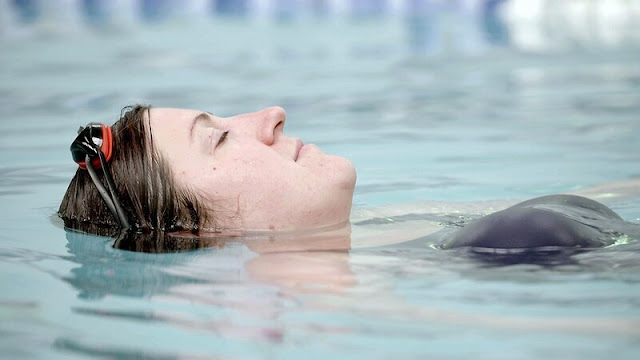Many parents choose to introduce children to swimming from an early age. As we well know, it is a discipline with great health benefits. How can your practice help the well-being and comprehensive development of children? Let's explain it.
Benefits of swimming for children
In the following lines, we will dedicate ourselves to reviewing the main benefits of this sport for the little ones. Likewise, we will see some basic advice for the moment of starting this activity.
Motor development
According to scientific publications, the aquatic environment favors the development of different physical abilities in children, especially when swimming with lifeguard courses is practiced from an early age. In that same study, it is argued that the only requirements for this learning process to begin are mastery of sitting, standing, and walking independently.
With this base, the child can subsequently acquire skills of the aquatic environment, such as the following:
- Float up.
- Boost in the water.
- Turn around.
- Control your breath.
- Basic swimming techniques, such as the 'puppy' or front cra6wl.
The time it takes for children to acquire these skills will depend largely on the individual characteristics of each one. In general, this stage lasts between 18 and 60 months, according to the publication of the Polytechnic University of Madrid mentioned above.
Physical well-being
Swimming can be an ideal way for children to keep their bodies in good shape. According to the World Health Organization, physical activity in childhood helps develop cardiorespiratory fitness and muscle function, preserves bone density, and helps prevent the onset of certain diseases, such as non-communicable diseases.
According to this international body, children should perform at least 60 minutes of moderate to vigorous physical activity daily. Given its condition of aerobic activity and its low impact on the joints, swimming is, without a doubt, a highly recommended option.
Socialization
Beyond the fact that each person performs individually in the pool, swimming implies space and a moment of contact with other children for children. At a stage where they are discovering social relationships, doing so in a recreational and fun context is more than positive for them.
Mental benefits of swimming for children
As we will see later, children do more than develop their physique when faced with the task of learning to swim. On the mental plane, they are taking on a challenge, with the perseverance and effort that this implies.
Likewise, they also enter a totally new activity, which makes it difficult for them to fight against their fears and insecurities. That this mental work is undertaken from an early age will also bring other benefits during their growth in later years.
Security
Beyond all the previously mentioned advantages, we cannot ignore the fact that knowing how to swim is a tool that a person carries with them all their lives and that can save them from drowning. Given this, swimming emerges not only as a highly recommended sport but almost as a necessity to prevent unfortunate events.
Important aspects of teaching swimming
Now that we know why it is such a recommended discipline for children, it is also time for us to know some important points about the teaching methodology :
fears
One of the main functions of the adult responsible for teaching a child to swim is to create an environment in which the child feels safe and secure. We must not ignore the fact that the aquatic environment is not natural for people, therefore, adaptation is not as simple for everyone. The company of the parents can be of help during the first days.
Progression of swimming exercises for children
Without exception, the first sessions should include only adaptation activities. In this way, children can become familiar with the water and gain the confidence to start performing more difficult actions over time. The professional in charge will be the one who evaluates the duration of this initial period.
The play plan
During all this process, the recreational aspect cannot be left aside in any way. The idea is that the little ones perceive this moment as a distraction, a fun part of their routine. Otherwise, an aversion towards swimming could be generated that would produce the opposite effect to what is being sought.
In short, these are the benefits of swimming in children and the keys to successful learning. Beyond being a recommended activity, keep in mind that the main thing is that they decide to do it and feel happy with it. Your mission is to encourage them to take the first step!







2 Comments
There are various dissertation internet websites on the net when you attain definitely reported with your web page.
ReplyDeletelifeguard certification
This comment has been removed by the author.
ReplyDelete